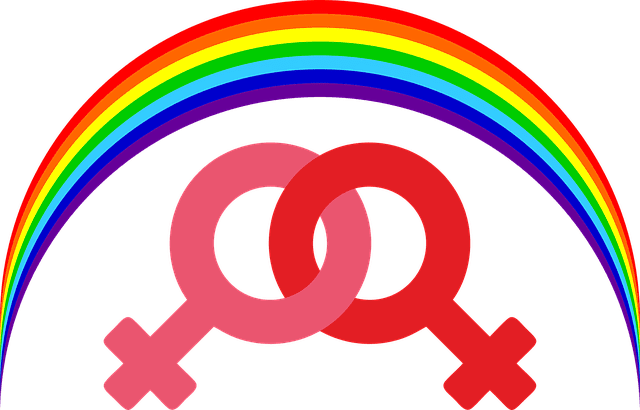
A Catholic psychologist wrote:
I think that, over the next 100 years or so, a lot of self-righteous people and self-righteous organizations (read religions) are going to be eating their words regarding homosexuality. This could develop into another proof that our energies should be spent on spreading the Gospel and not negative commentary on things we do not understand. For example, if we want to work beyond the spreading the Gospel; how about stopping abortion?
What is he trying to say? Does he want to assert that a radical redefinition of marriage is perfectly fine and dandy and in harmony with 2000 years of received Christian Tradition? What is it he thinks we don’t “understand”?
The implication of a remark like the one above is that those of us (entire religions, for heaven’s sake!) who simply oppose homosexual acts as sinful and a radical revision of marriage and removal of procreation from the essence of sexuality, are self-righteous (and profoundly ignorant). We’re gonna “eat our words”. We’re like Pharisees (renowned — at least the corrupt among them, since Paul called himself one twice — for their self-righteousness). How so?
The Church will supposedly eventually wake up and figure out that homosexuality is either 1) perfectly normal as a life-choice, or 2) merely an abnormality of genes rather than a sin, as Christianity has always taught? Psychology allegedly has far more insight than historic Christianity, with regard to homosexuality; it now has some knowledge to offer us about homosexuality that Catholicism has not understood for 2000 years and is need of knowing, courtesy of (generally speaking) massively secular psychology?
This is a very serious ethical topic in Christianity and the larger culture. Do psychologists who feel like this expect us to accept without argument their dogmatically expressed opinions that Christians are utterly ignorant about homosexuality, whereas modern psychology “gets it” and we will all eat our words 100 years from now?
Anyone can pull out all the stats and scientific studies and psychological expertise that they want. I respect that, but it’s not infallible and should not be presented as such. I can also produce a ton of medical documentation of the tragic health effects of homosexual anal sex (it’s already “out there” on my blog). If anyone wants to make some kind of argument along these lines, they’re more than welcome to do so on my blog (and I will, of course, give a vigorous critique).
As to the present topic of homosexuality, Church teaching is very clear (in the Catechism of the Catholic Church):
2357 Homosexuality refers to relations between men or between women who experience an exclusive or predominant sexual attraction toward persons of the same sex. It has taken a great variety of forms through the centuries and in different cultures. Its psychological genesis remains largely unexplained. Basing itself on Sacred Scripture, which presents homosexual acts as acts of grave depravity,141 tradition has always declared that “homosexual acts are intrinsically disordered.”142 They are contrary to the natural law. They close the sexual act to the gift of life. They do not proceed from a genuine affective and sexual complementarity. Under no circumstances can they be approved.
2358 The number of men and women who have deep-seated homosexual tendencies is not negligible. This inclination, which is objectively disordered, constitutes for most of them a trial. They must be accepted with respect, compassion, and sensitivity. Every sign of unjust discrimination in their regard should be avoided. These persons are called to fulfill God’s will in their lives and, if they are Christians, to unite to the sacrifice of the Lord’s Cross the difficulties they may encounter from their condition.
2359 Homosexual persons are called to chastity. By the virtues of self-mastery that teach them inner freedom, at times by the support of disinterested friendship, by prayer and sacramental grace, they can and should gradually and resolutely approach Christian perfection.
Catholics are not at liberty to disagree with this. The Catechism was promulgated under Pope St. John Paul II in 1992, accompanied by the Apostolic Constitution Fidei Depositum, which stated in part:
The Catechism of the Catholic Church, which I approved 25 June last and the publication of which I today order by virtue of my Apostolic Authority, is a statement of the Church’s faith and of catholic doctrine, attested to or illumined by Sacred Scripture, the Apostolic Tradition and the Church’s Magisterium. I declare it to be a sure norm for teaching the faith and thus a valid and legitimate instrument for ecclesial communion. . . .
Therefore, I ask all the Church’s Pastors and the Christian faithful to receive this catechism in a spirit of communion and to use it assiduously in fulfilling their mission of proclaiming the faith and calling people to the Gospel life. This catechism is given to them that it may be a sure and authentic reference text for teaching catholic doctrine and particularly for preparing local catechisms. It is also offered to all the faithful who wish to deepen their knowledge of the unfathomable riches of salvation (cf. Eph 3:8). It is meant to support ecumenical efforts that are moved by the holy desire for the unity of all Christians, showing carefully the content and wondrous harmony of the catholic faith. The Catechism of the Catholic Church, lastly, is offered to every individual who asks us to give an account of the hope that is in us (cf. 1 Pt 3:15) and who wants to know what the Catholic Church believes.
As for opposition to homosexual radicalism being somehow antithetical to pro-life efforts, what do apples have to do with oranges, except for being in the same category (fruit)? What does opposition to one (serious) sin have to do with opposition to another? If I fight world hunger and the greed and corrupt governments, etc., that contribute to it, I can’t also be a pro-life activist? If I join a group that shelters women who are beaten by their husbands, I can’t also evangelize and do apologetics? I must say that I do not understand this reasoning.
It makes sense (to me, anyway, and maybe I’m nuts and don’t understand language) only if one argues that homosexual acts and the drive to legalize same-sex “marriage” are such minor sins (if at all), that we need not waste our time and energy and resources to oppose them. Otherwise, it makes no sense to argue that “serious sin A must not be opposed, for the most part, because it is relatively less harmful to souls and to society than serious sin B”.
I can understand choosing to spend one’s time opposing abortion over against a campaign to reduce white lies or rudeness or jaywalking, because there seems to me to be a clear difference of degree of wrongfulness. I can’t see, however, setting opposition to abortion over against opposition to the full societal movement to legitimize same-sex “marriage”, because the latter (that is, the acts involved) is also a very grave and disordered sin, just as abortion is. So now we categorize grave sins as those that should be opposed by Christians in society, and those which should be left to the private realm and unopposed, as if Christianity is libertarian, and grave sins don’t have grave social consequences?
This mentality strikes me as similar to the one (held formerly by myself as a Protestant) that opposes abortion, but doesn’t oppose contraception, which is the very prior acceptance and worldview particular opinion that leads in many ways to abortion (both philosophically and even legally), because it is anti-child and accepts the fallacious premise.
I want to emphasize as strongly as I can (because this issue always comes up): it is wrong and a serious sin to cruelly treat a homosexual person and to not differentiate between the sin and the sinner: a human being who deserves and is entitled to love and consideration no matter what sin he has committed, or even defends. I’d venture to guess that not one in a hundred reading this would suggest that homosexuals should be treated poorly, though there are some Christians who do adopt such abominable and unChristian attitudes.
Committed Christians get “wound up” over homosexuality, not out of a motive of hate or derision of someone merely because he or she is a bit different from them, but because homosexual acts are grave sins, that not only harm society in that the lifestyle presupposes many grave sins within it: non-procreative sex, redefinition of marriage, etc., but is extremely harmful to those who practice it: morally and in terms of health (males far more so than females, because of the difference in the sexual acts and relative healthiness of them).
Such opposition is is not just confined to the Old Testament (as some mistakenly seem to think). St. Paul was very clear that homosexuality was serious sin, too, and against nature itself (see, e.g., Romans 1:24-27). Jesus makes reference to the sins of Sodom (and we know what those were) in Matt 10:15; 11:23-24; Mk 6:11; Lk 10:12; 17:28-30. St. Peter refers to it in 2 Peter 2:6-8; as does Jude 7, very explicitly, and Rev 11:8. So this is another red herring, as if opposition to homosexual sex is an outdated “Old Testament thing,” made superfluous and thoroughly antiquated by the font of moral wisdom and profundity that is modern psychology (and I know a bit about that field, as I minored in the subject in college), that (so it is always reminding us) “knows better” than ancient Jewish and Christian received moral tradition.
***
Related Reading:
*
***
(originally 7-16-08)
Photo credit: succo (7-8-17) [Pixabay / Pixabay License]
***













